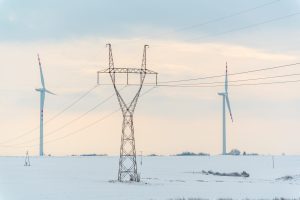Wall Street Journal features two sessions: one on renewable energy and one session on the role PROPANE will have in getting to netzero and beyond
Online Sign Up, Gets You In Both Sessions:
September 7, 12:30 to 2:00
Session One: The Future of Energy
New innovations — from electric vehicles to hydrogen technologies — have upended the energy industry, while volatile prices, global conflict and extreme weather events have complicated consumers’ access to traditional energy sources. We take a look at what’s ahead for the energy sector, from the cutting-edge innovations capturing investors’ attention to government attempts to boost climate incentives.
——————————
September 7 from 2:00–2:30 p.m. ET.
Session Two: PROPANE: A Wider Path to Decarbonization
Clean-energy transformation had a record breaking year in 2022, with financing for technologies to decarbonize the world’s economy surpassing $1 trillion according to 2023 Sustainable Energy in America Factbook. Yet the race to lower emissions continues, and the urgency to invest in new sources of renewable energy has grown. In this session, we’ll discuss how clean-burning alternative fuels play a critical role in decarbonization, the innovation driving propane’s evolution as a renewable energy source, and why the path to net zero isn’t a zero-sum game.
Speakers:
Nuray Elci | General Manager, Renewables, Chevron
Rebecca Groen | CEO Futuria, SHV Energy
Tucker Perkins | President and CEO, Propane Education and Research Council (PERC)
The production of renewable propane and other renewable liquid fuels is poised to revolutionize not only transportation but also agriculture, construction, material handling, and power generation.
Propane already has a lower carbon intensity than the U.S. grid on average and renewable propane made with camelina plant oil reduces it to near zero. The production of renewable propane and other renewable liquid fuels is poised to revolutionize not only transportation but also agriculture, construction, material handling, and power generation.



